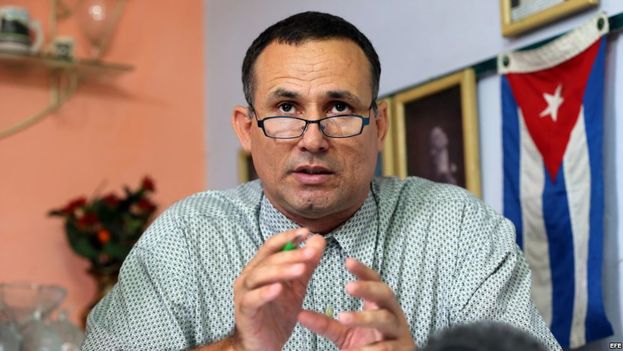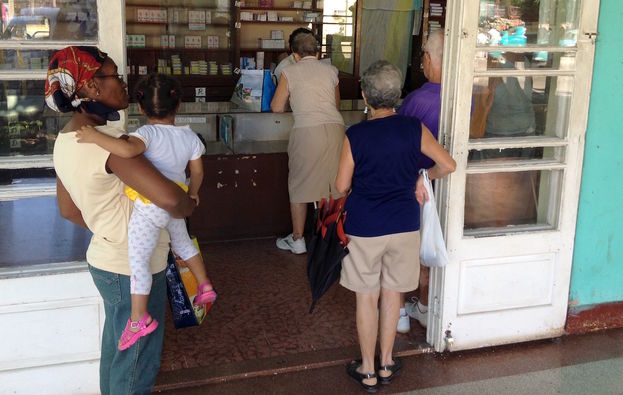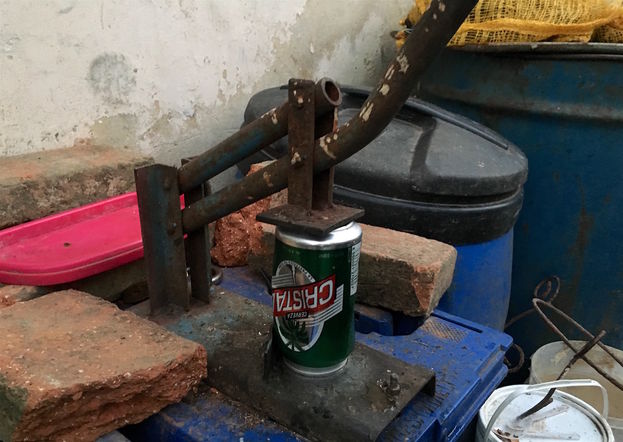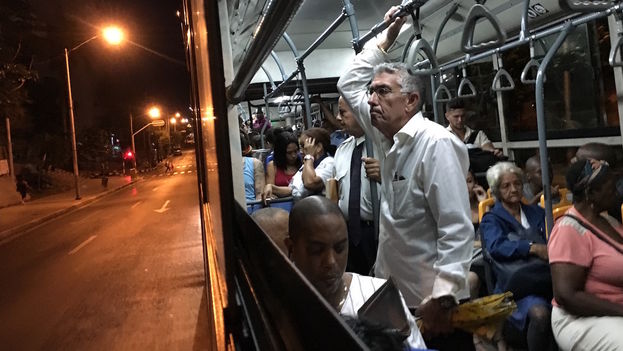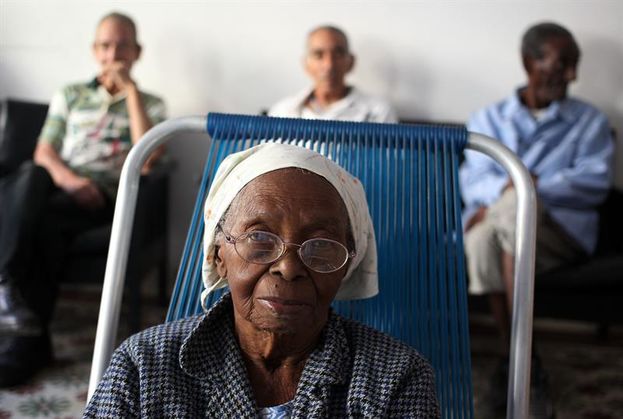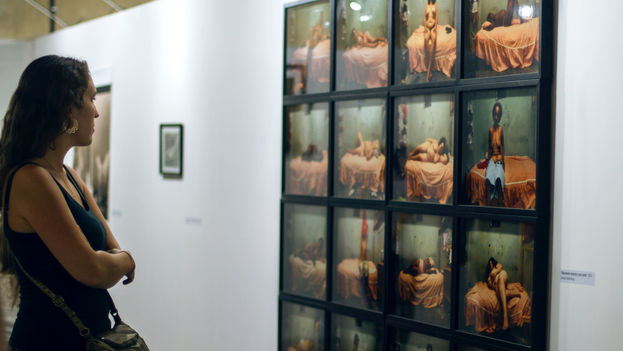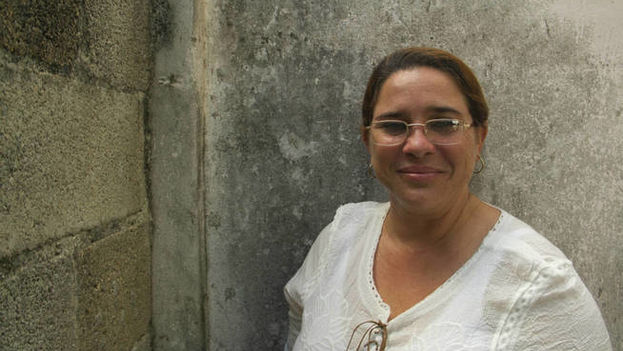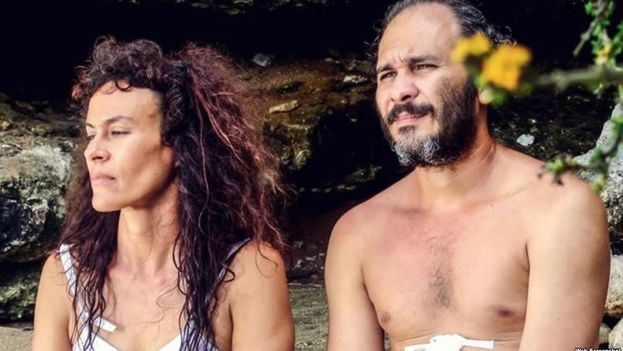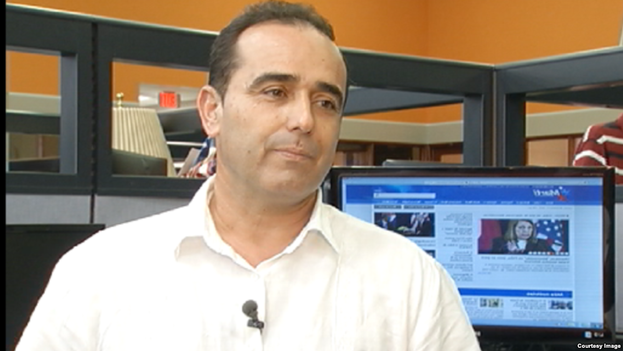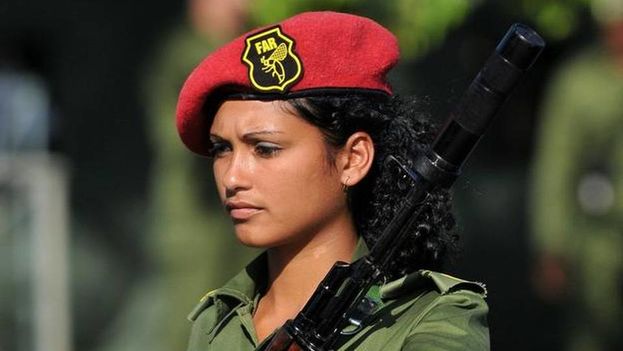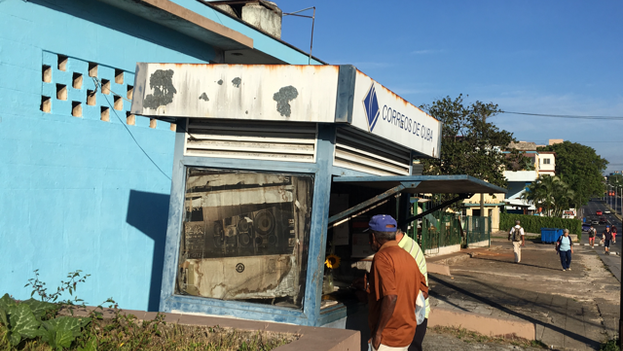
![]() 14ymedio, Miriam Celaya, Havana, 9 March 2017 — On one of the side walls, inside a small newspaper stand on Avenida 26, in Nuevo Vedado (Havana), an unusual sign announces: “This stand became private property.”
14ymedio, Miriam Celaya, Havana, 9 March 2017 — On one of the side walls, inside a small newspaper stand on Avenida 26, in Nuevo Vedado (Havana), an unusual sign announces: “This stand became private property.”
The event is unique. The elderly self-employed man behind the counter is normally cautious. Survival instinct has taught Cubans to mistrust those who ask too many questions, particularly when what’s in play is the relative security of some additional monetary income to round off the meager retirement income.
However, when an informal conversation is established, some information and small details always surface which, at least in principle, confirm that a new secret experiment has been initiated by the State-Party-Government: the process of legal privatization of the sale of the main ideological weapon of the revolution: the press. continue reading
The truth about the new measure that includes the commercialization of the official press as a sole proprietorship activity was confirmed by Yordanka Díaz, director of the Cuban Postal Service, Habana-Centro
It is obvious, in addition, that this event is taking place barely three months after the death of the infamous creator of the information monopoly, as soon as the last prop tears of his faithful have dried up and in the midst of constant invocations in the press “to his memory, his legacy and his work.” No one can ignore that the colossal Castro press, and especially the Granma newspaper, was the apple of Fidel Castro’s eye, who commanded it for decades from his office, from where he was taken daily through the tunnel connecting the Granma building with the Palace of the Revolution, for his final approval, before going to press.
The true nature of the information about the new measure that includes the commercialization of the official press as a sole proprietorship activity was confirmed to this publication by Yordanka Díaz, director of the Cuban Postal Service Habana-Centro, in the Plaza of the Revolution municipality. “It is necessary to satisfactorily complete a 3-day course, after which the contract is made and then the worker must go to the National Office of Tax Administration (ONAT) to try to obtain his license.”
The official director added that, in the municipality under her management, there are at least three vacant places to negotiate a newspaper stand. So far, those who have filled the previous vacancies are retired workers or housewives returning to the workforce.
Although the vendor at the Avenida 26 location has misgivings that make him seem unwilling to reveal many details, it is obvious that he is more satisfied with his new status as self-employed, than that of his former status as an employee of the State. “Before, the State paid me a salary of 120 Cuban pesos a month, now I must pay 10 pesos a day. The price of a newspaper is still 20 cents in national currency, so I would have to sell 300 newspapers to earn 3 pesos, but people ‘help me’, some leave me a peso or 50 cents The state does not have to pay me a salary, but it charges me 300 a month; they win, I earn more now …and everyone is happy.”
The State will not distribute the newspapers to the sellers working as “self-employed,” which is another advantage, as it frees itself from transportation costs
The vendor does not reveal that, in fact, his greatest gain is in the established practice of selling wholesale to unlicensed street dealers, or informal home delivery, where there is a fixed minimum monthly rate of 30 Cuban pesos, which may be higher if the customer receives more than one daily newspaper. It is not a business that yields significant profits, but it does not require much effort or investment, and it helps to put food on the table.
Something else that’s new is that the State will not distribute the papers to the sellers working as “self-employed,” rather it will be the responsibility of the vendors to pick up and transport the papers to their individual stands, which is another advantage for the State, since transportation costs from the printing locations to the stands throughout the city are no longer the State’s responsibility. There is also a fixed allocation of newspapers for each seller, in order to avoid hoarding.
The vendor becomes more talkative as the conversation progresses. “They say they are going to repair the kiosks, which are in very bad condition, they are going to fix the ceilings and paint them, but I’m not sure about that. The stands are theirs, the sales, mine.”
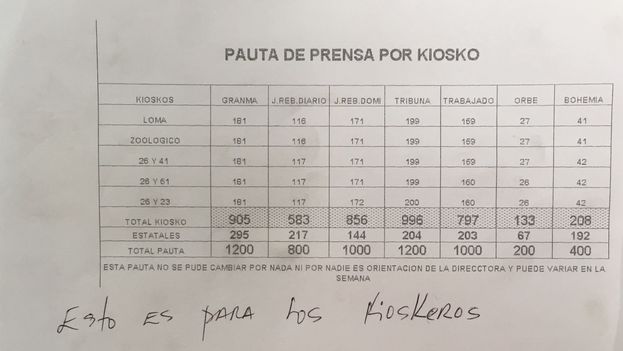
“But I can only sell newspapers, no magazines, no books, no calendars or anything like that,” the old man explains. “But it’s okay, I don’t complain. It’s always easier to unload newspapers; people buy them more readily than they do magazines. They even buy old newspaper… imagine, of course they’ll sell, seeing how difficult it is to get toilet paper!”
At this point, everything has a certain logic, though it would seem, at least paradoxical, that the airtight press monopoly – so pure, so anti-capitalist, so Marxist – has consented, at least partially, to the commercialization of this important “trench” to the private sector, even if it is such a humble and low-profit activity as the sale of newspapers, usually taken over by retirees or other low-income workers.
However, taking into account the calamitous economic situation and the high costs arising from this archaic way of disseminating information, the State is compelled to exploit any way of lightening the load that results from the maintenance of a printed press monopoly in a country where limited and costly internet access, coupled with the Government’s imperative need to control information, prevents the absolute digitization of the media.
This way, the government is tied to its own Gordian knot: the monopoly of the press and the country’s laughable internet access are musts for the regime if it wants to keep the population uninformed or ill-informed, without other alternative sources of information about what is happening in the world or even within the nation, and without the possibility of comparing the news offered by the official media. But this, in turn, forces the government to sustain an unaffordable industry of the press in the middle of an economic crisis that produced negative numbers in 2016 and threatens an even more unfortunate 2017.
Allowing the sale of newspapers as a non-state activity, the government has simply legalized another black market item, since, for many years and to date, the private (illegal) sale of the official press has existed
In reality, the rationing process of the official press machinery has been showing signs for a long time. Recently, the country’s main newspaper, Granma, with only eight pages (four flat sheets) renewed its old and recharged design, not so much to improve its print quality and presentation – which remain aesthetically deplorable – but to save ink. For a long time there has been only one national edition in circulation.
Now, by allowing the sale of newspapers as a non-state activity, the Government has simply legalized another black market item – a phenomenon that has marked the entire “list” of what is regulated for the private sector – since for many years and to date the private (illegal) sale of the official press has existed, carried out by elderly and needy people who, not trying to disguise the act, and with their face uncovered, loudly yell out the headlines and sell without fuss in the middle of the road, buying the papers at 20 centavos and selling them at the price of one peso in national currency. In short, the black market of the official press has been legalized.
Curiously, this new form of self-employment has not been reviewed by the official press, although it is news of a clear symbolic meaning.
Translated by Norma Whiting

